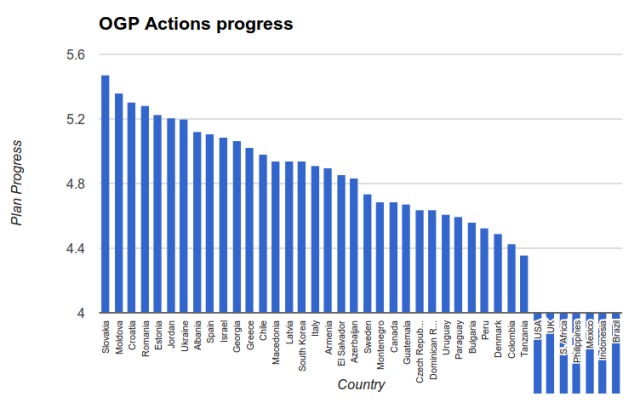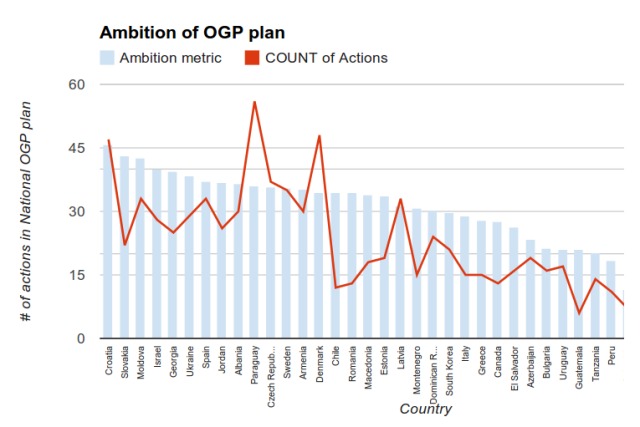Open Government countries ranking 2013 (based on OGP data)
Open Government is very likely to be democracy’s next milestone.
Should you care about open government? Possibly, because it guarantees transparencyAccording to OGP’s Articles of Governance, transparency occurs when “government-held information (including on activities and decisions) is open, comprehensive, timely, freely available to the pub... More and accountability. But not in my opinion. In 2014 this passive role for the citizens is not enough. The most disruptive character of the open government project is the use of collective intelligence to take smarter political decisions for current and future challenges.
OGP is a global organization with 64 member countries helping each other in the implementation of open government policies. On a yearly its members publish and deploy open government plans outlining specific actions that need to be taken. These plans are reviewed not only by country authorities but also by civil society. This social dialogue review includes an Independent Reporting Mechanism.
Results
Let’s review the results for 2013. Raw data for this analysis has been published by OGP, and anybody can download them (commitments and achievements). Good!
In the 2013 graph you find the results of which elements of their plans countries really implement. In order to get these results four factors have been taken into account:
The first factor involves the question whether the action is specific of an Opengov approach. The second one looks at whether the action has really had an impact on current politics. The third one tries to understand whether the action is new or whether it is the same as past years. And last but not least, whether the action has been implemented fully, partially, or whether it has even been withdrawn.
Three medals go to Slovakia, Moldova and Croatia.
You can find the metric to create this graph here. It is true that metric is far from perfect, so I expect your comments.
Editorial Note: The graph above is skewed against the 8 founding OGP governments because their data were not yet included in the available dataset.
The good performers
Good performers are those countries which provide tiny ambitious plans but implement it a manner which is above average. There are three remarkable countries: Paraguay, Denmark and Czech Republic.
“Pretenders”
What about the “pretenders”? Pretenders are those who provide very ambitious plans but fail in the implementation stage.
The three observable pretenders are Estonia, Romania and Greece out of those who are in the first 25.
AmbitionAccording to OGP’s Articles of Governance, OGP commitments should “stretch government practice beyond its current baseline with respect to key areas of open government.” Ambition captures the po...
Over-ambition is tempting in politics. Here you can find a classification of the countries’ plans based on the ambition of their actions, in terms of impact, new actions and Opengov relevanceAccording to the OGP Articles of Governance, OGP commitments should include a clear open government lens. Specifically, they should advance at least one of the OGP values: transparency, citizen partic....
Such data can also be analysed through an interactive geolocated chart which can be accessed through the following link: http://gobernamos.com/scripts/ogp_chart/index.html


